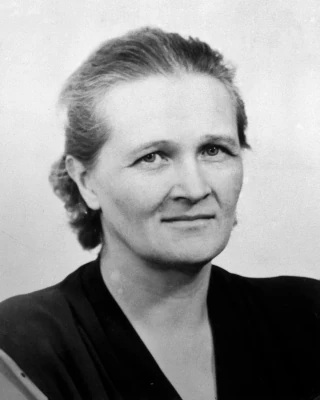
Born on May 10, 1900 in Wendover, England, Cecilia Helena Payne (1900-1979) developed an early interest in science. Her father, a historian and lawyer, encouraged her intellectual curiosity. At 19, she attended a lecture by Arthur Stanley Eddington (1882-1944) about the 1919 eclipse that confirmed the theory of general relativity. This lecture changed the course of her life.
In 1919, she received a scholarship to study botany, physics, and chemistry at Newnham College, Cambridge. However, Cambridge did not award degrees to women before 1948. She completed her studies without an official degree.
In 1923, she emigrated to the United States where she obtained a fellowship to work at the HCO. She became the first woman to earn a PhD in astronomy (1925) with a revolutionary thesis on the composition of stars.
In her thesis titled "Stellar Atmospheres," Payne demonstrated that:
These conclusions, initially rejected by astronomers like Henry Norris Russell (1877-1957), were confirmed a few years later. Her work laid the foundation for modern astrophysics.
After her PhD, Payne stayed at Harvard where she:
Despite her major contributions, Payne had to fight against sexist prejudices throughout her career. Her work enabled:
She finally received the recognition she deserved with distinctions such as the Henry Norris Russell Prize in 1976.
| Discovery/Contribution | Year | Field | Impact |
|---|---|---|---|
| Chemical composition of stars (H and He dominant) | 1925 | Astrophysics | Foundation of modern astrophysics, confirmed in 1929 |
| Study of high-amplitude variable stars | 1930-1938 | Stellar astronomy | Understanding of stellar variability mechanisms |
| "Stars of High Luminosity" (with Sergei Gaposchkin) | 1938 | Stellar catalog | Reference for the study of luminous stars for 50 years |
| First female professor at Harvard | 1956 | Education | Opening of academic positions to women in astronomy |
| Study of the structure of the Milky Way | 1950-1960 | Galactic astrophysics | Major contribution to the mapping of our galaxy |